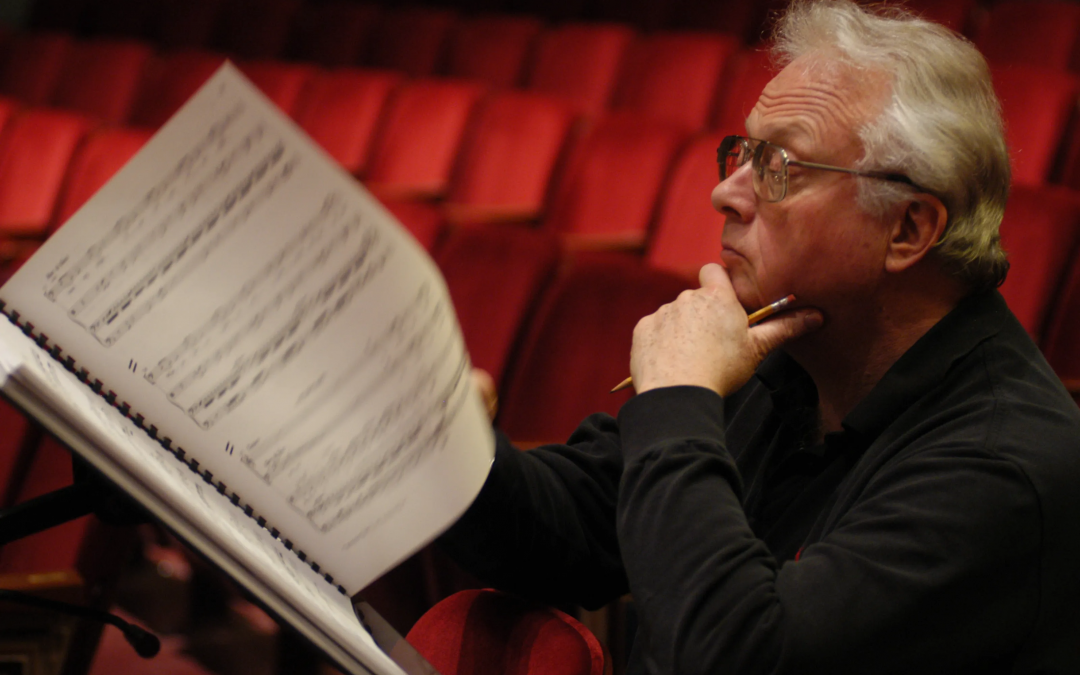National Medal of Arts, Pulitzer Prize, and Grammy Award winner William Bolcom is a composer of chamber, operatic, vocal, choral, cabaret, ragtime, and symphonic music. He joined the faculty of the U-M’s School of Music in 1973, was named the Ross Lee Finney Distinguished University Professor of Composition in 1994, and retired in 2008 after 35 years. Bolcom won the Pulitzer Prize for music in 1988 for 12 New Etudes for Piano, and his setting of William Blake’s Songs of Innocence and Songs of Experience on the Naxos label won four Grammy Awards in 2005.
Commissioned for and performed at our Opening Night concert of the 2018-2019 season, Bolcom’s ‘Ann Arbor Saturday’ evokes the sights and sounds of the city as the nation’s favorite sport prepares to kick off. The composer goes on:
Ann Arbor has a huge and hugely famous football stadium, which since its redoing, resembles Rome’s Colosseum; sometimes passing it I imagine screams of Christians devoured by lions.
You may gather I’m not a football maniac, but I do remember with pleasure and pride our high school team in Everett, Washington, then an ugly town with sulfite belching out of several paper mills, plus cinders from the shingle-cutting mills wafting off Port Gardner to cover my mother’s sheets with little black soot marks from being hung outside. Our team won state championships frequently in football and I was proud of them – I think they respected my outgripping some of them because of my strong pianist’s hands (how long ago that was!), and it was fun to see some surviving members in 2005 at our 50-year reunion. (The town was totally transformed after I’d left, mostly by Boeing’s planting their 747 factory nearby.)
The game of football seemed a lot simpler in the early 1950s, and maybe less brutal; I don’t remember headbutting or the other extreme things seen on TV today, and many recent rules I hear of elude me now. But what am I to say, living in one of the premium cathedral towns of college football? There is a certain delicious ozone in the air on game days, even palpable for non-sports fans, and this is what Ann Arbor Saturday tries to evoke.
First, we feel the calm of the empty city, before long défilés of cars snake into the city from all directions. (Listen in the orchestra for hints of college songs from warriors who have contended at The Temple for many years, starting with tunes from home.) There are quite a number of fight songs used, sometimes in counterpoint three and four at a time (we should have a contest to see who can guess most of them). See if you can hear snatches of the tunes in the orchestral texture before they surface.
The rumbling grows as the long lines of cars come close to The Game. A quick cut to the almost-ghostly silence of the town, then a fast-forward to a game in progress between the home team and its bitterest rival. Our team’s fight song is in upper counterpoint to the rival’s and will stay there – until the rival intercepts and the tunes are reversed. After a fast and furious ball-carry, the rival scores a touchdown and the conversion.
A moment of dejection from the home team – but our superior fight song wells up from the tubas, followed by a fugato on the tune’s motive depicting our side’s rallying. What follows is a Marx Brothers set of impossible touchdowns by our team, followed by instantaneous conversions – a concerto of silliness, but what the heck, they win the game. After a short break for the town’s hymn, it is time for revelry.

